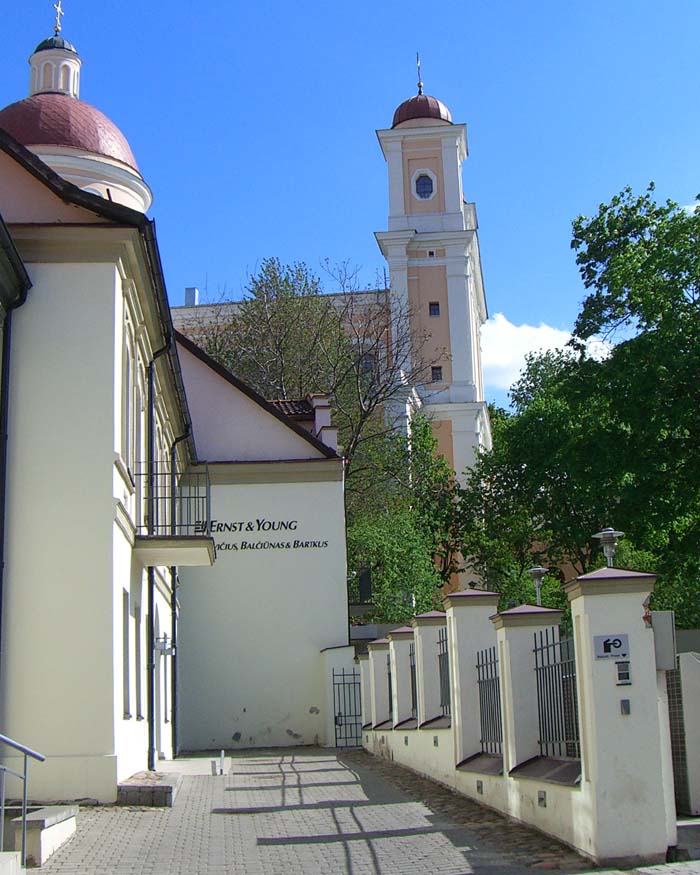Old buildings of Vilnius, Lithuania, May 2006
Pictures taken during my trip to Lithuania in May of 2006.
The places captured in these pictures are not necessarily representative of my home town, but they are the most memorable to me. These buildings are not postcard-pretty, but they do have character. I like crumbling, decaying buildings, and walls that meet at odd angles.
Red brick gate and graffiti on Stulginskio street in Vilnius.

Dilapidated buildings on Stulginskio street in Vilnius. A guy digging in the dumpster: a common sight in Vilnius
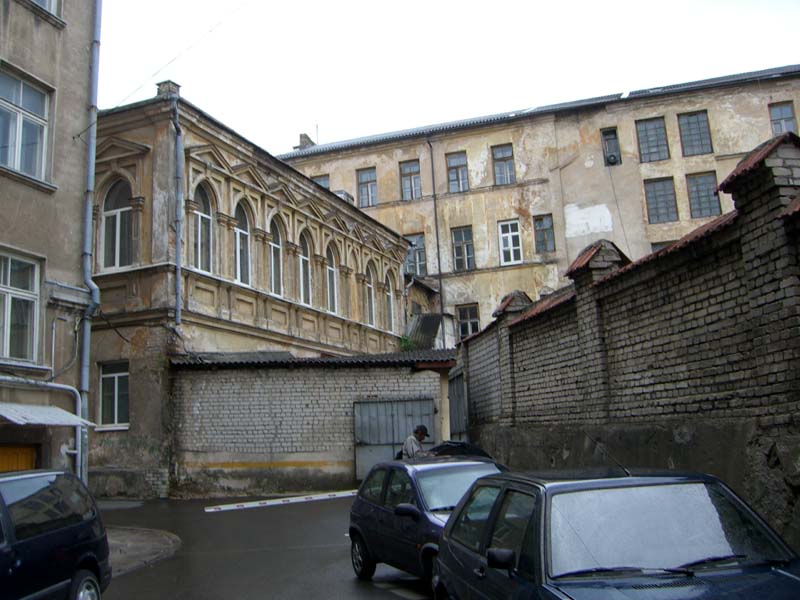
The courtyard of the apartment complex where I grew up on Vienuolio street. These buildings are not really ancient, they are just dilapidated enough to have an almost gothic feel. They do inspire the imagination much better than the uniform, manicured American suburbs.
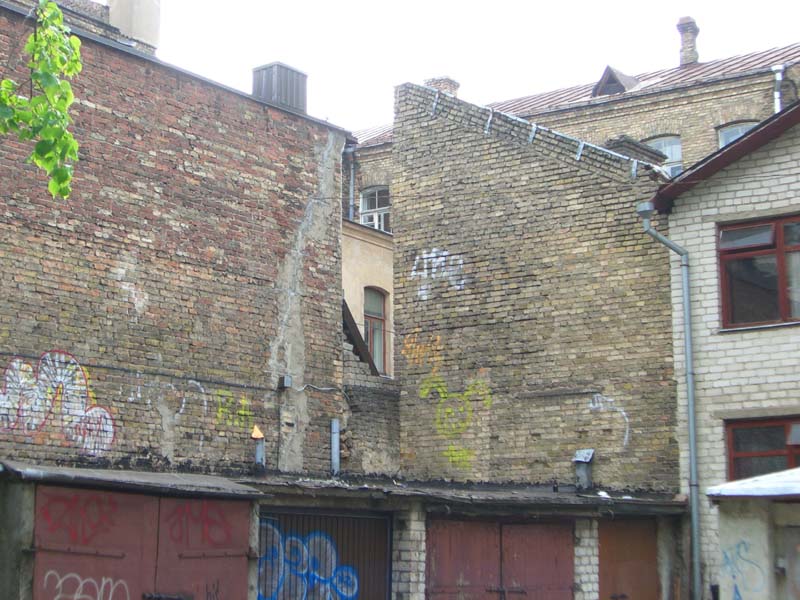
Same courtyard, different segment.
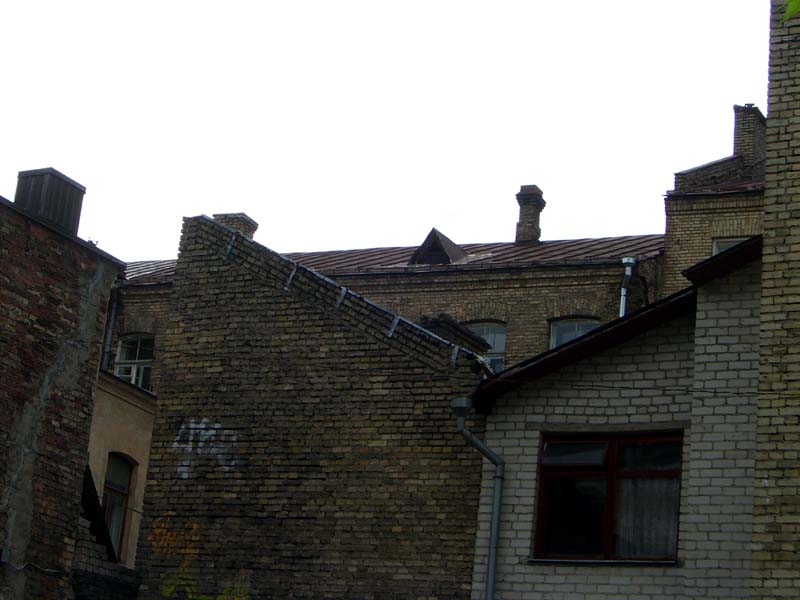
Just so the previous two pictures would not give a wrong impression that I grew up in a gloomy, gothy place, here is a more representative picture of the courtyard where I grew up. The house of the left is a house where our apartment was. There was a lot of green space there. But I was always a little envious of the kids who lived in those recessed, mysterious niches as shown in the two pictures above.
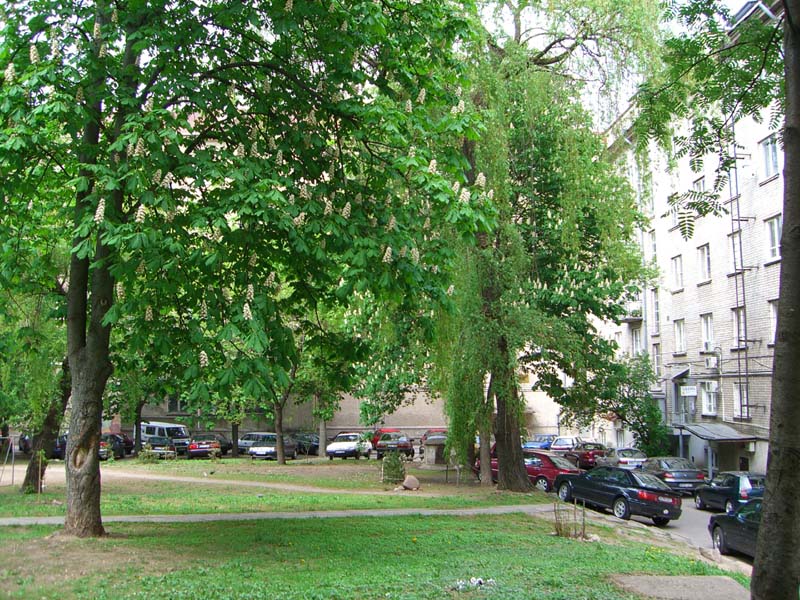
A courtyard in the center of Vilnius, on the edge of the Old Town, with arched windows. The sign on the left indicates the left building now houses a dentist’s office.

The same courtyard from a different angle. I like the niche with the staircase leading to the second floor. Or would that be the third, or 2.5th floor? Judging by the configuration of windows below it, there are some kind of shenanigans going on there. There is a window above the ground floor window, so they appear to be on different floors, but they together only occupy the height of one floor.

A courtyard on Totorių street in Vilnius Old Town
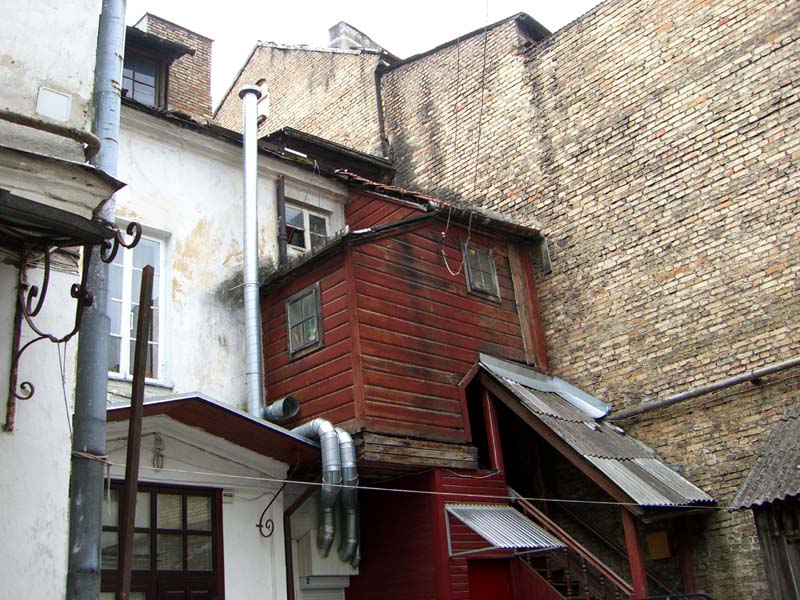
A two-level courtyard on Tilto (“Bridge”) street. This place, located smack dab in the middle of Vilnius, is a mystery to me. I call it a two-level courtyard. I wonder what is the function of this semi-circular wall with red tile-covered wings, on the right? And why is there another different layer of buildings on top of this wall? In the next picture you can see a yellow house that appears to be sitting behind the semi-circular wall. Well, it’s actually not behind it, it’s on top of it. Go figure.
Here is another view of the two-level courtyard from 2004.
When I tried to find this courtyard in 2016, I could not. The entrance to it might have been gated off and required an access code.
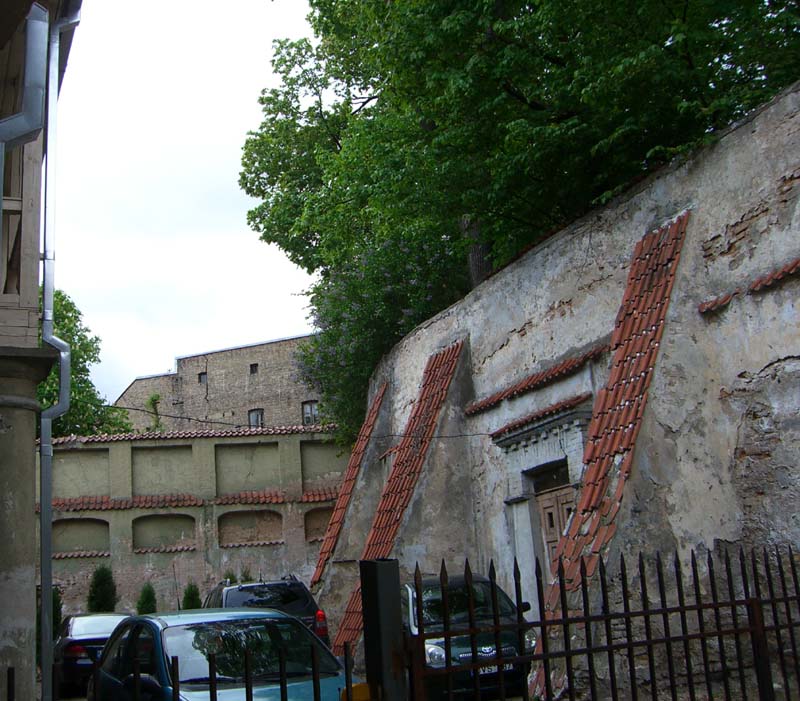
Another view of the two-level courtyard. The yellow house that appears to be sitting behind the wall with red tile-covered “wings” — it’s actually not behind it, it’s on top of it.
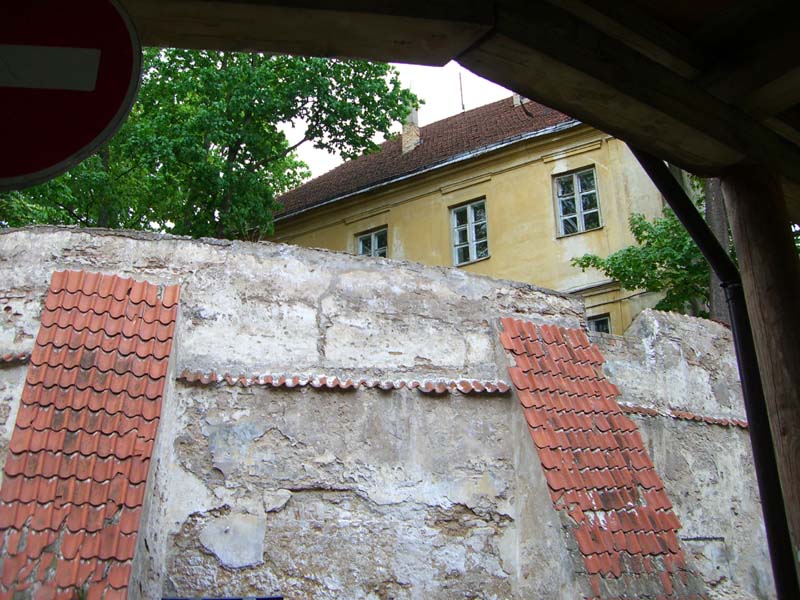
The Vilnius Castle, also known as the castle of Duke Gediminas, who was the founder of Vilnius

A view of the bell tower from King Mindaugas bridge in Vilnius

A view of the north bank of the Neris river from King Mindaugas bridge in Vilnius. The nearest building on the right is a Soviet era power plant. On the left, in the distance, is the Church of St. Archangel Raphael.

An alley off Pilies (“Castle”) street in the heart of Vilnius Old Town.
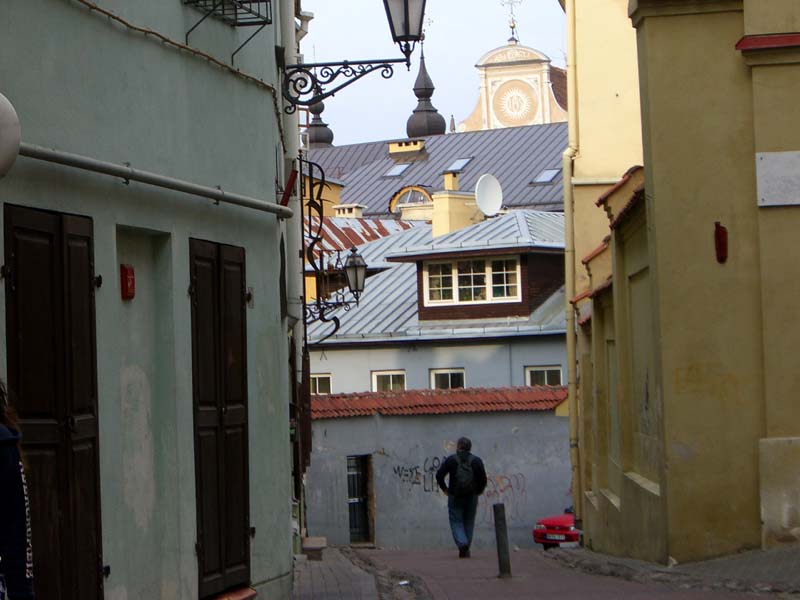
The same alley from further away

A courtyard off Pilies (“Castle”) street in Vilnius Old Town. The sign “Sidabrynas” implies the building in the back of the courtyard is a silver jewelry shop, though I don’t know exactly what it is.
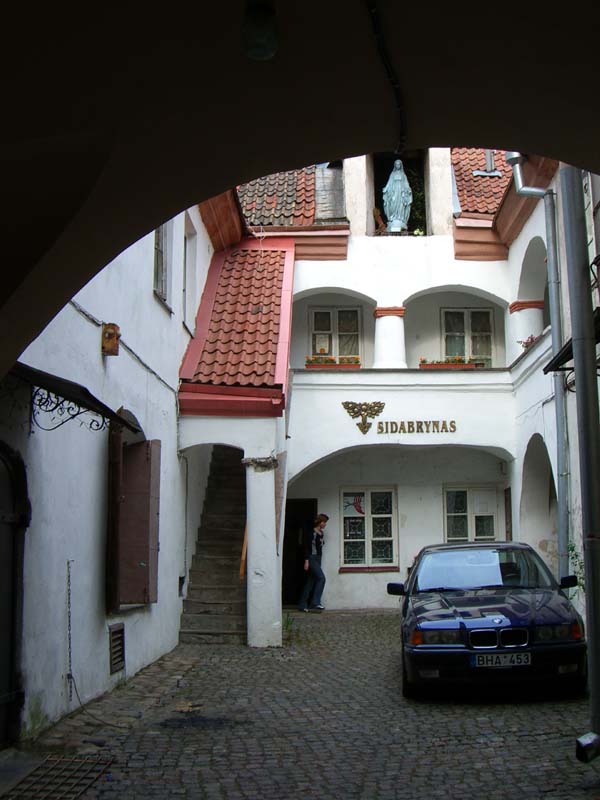
A narrow alley with multiple arches off of Pilies street

A cat on a doormat in front of a door on Pilies street

A second floor balcony or a walkway that connects two buildings facing each other, in a courtyard in Vilnius Old Town. I could understand the purpose of this joint balcony if these were office buildings that belonged to the same organization. And perhaps that’s the case. But it’s more fun to think that these are apartment buildings whose residents are just so extraordinarily neighborly.
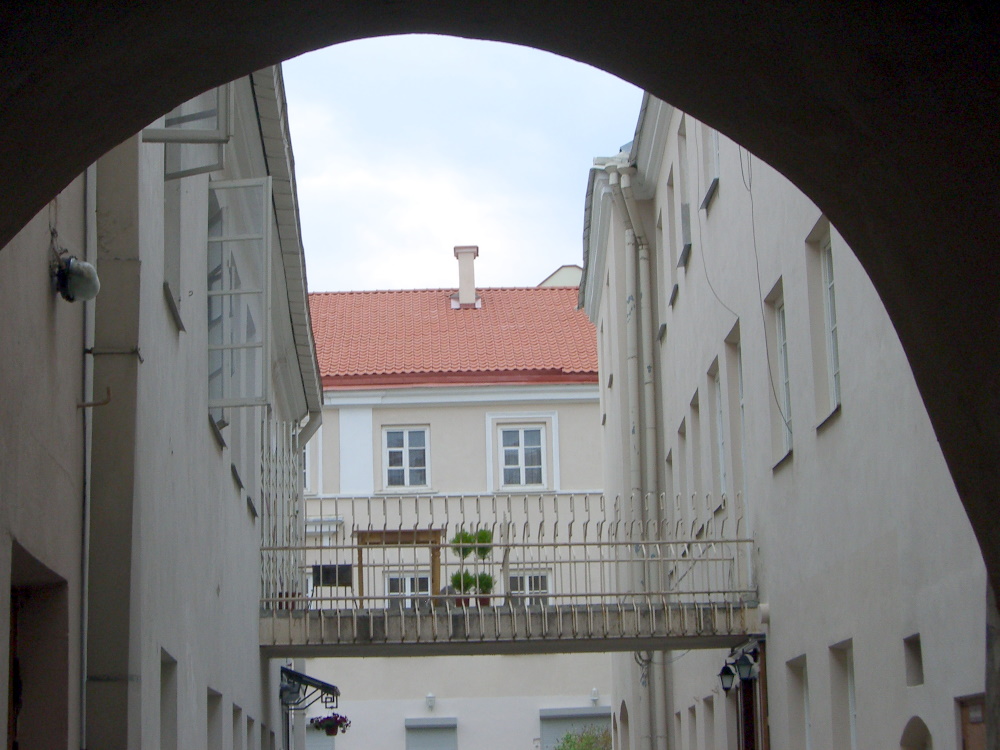
A view of the Stiklių (“Glassmakers”) street in Vilnius Old Town.
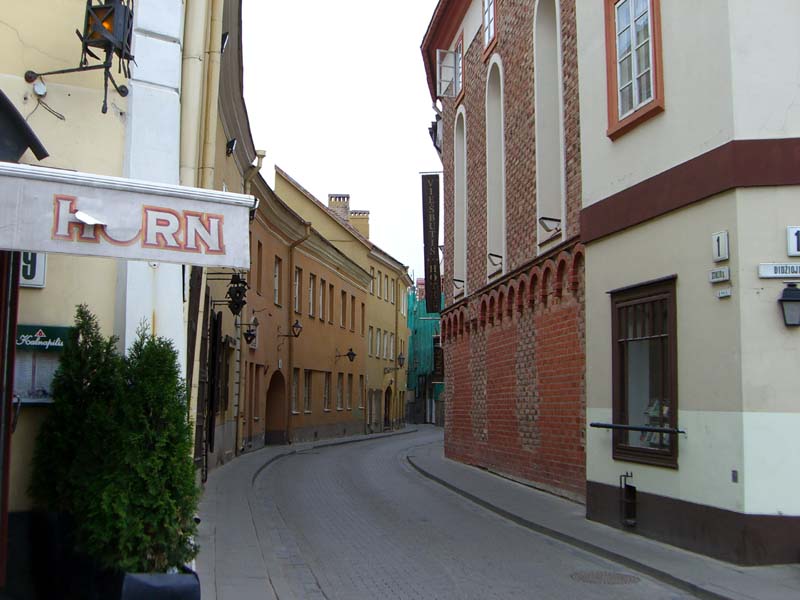
An outdoors restaurant in the heart of Vilnius Old Town, off of Didžioji (“The Great”) street. It’s situated in the courtyard of a renovated Renaissance or Baroque-era buildings. The awning advertises “Švyturys” (“Lighthouse”), the most popular Lithuanian beer.

A view of the Didžioji (“The Great”) street in Vilnius Old Town.
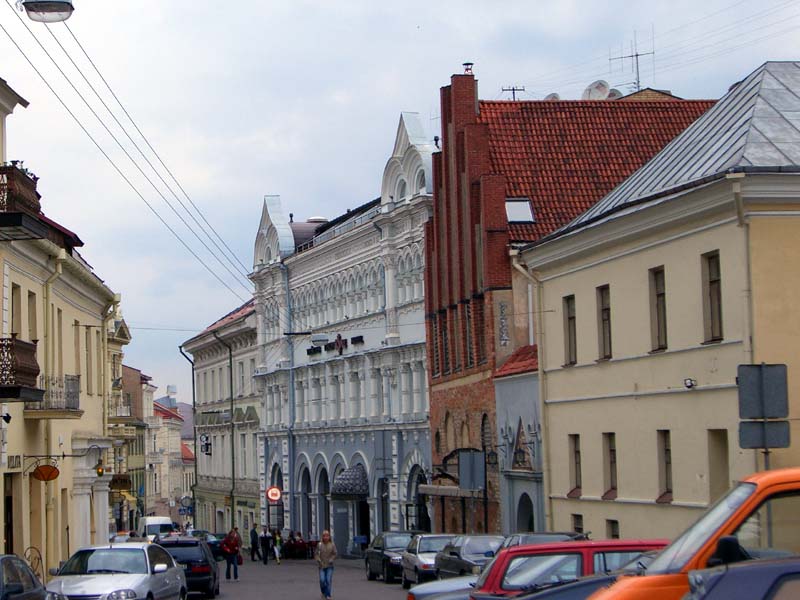
Another view of the same section of Didžioji street in Vilnius Old Town. On the right there is the gate of the church of Holy Trinity and Basilian monastery.

The gate of the Church of the Holy Trinity and Basilian monastery in Vilnius Old Town, with multiple arched passages stretching all the way into the distance.
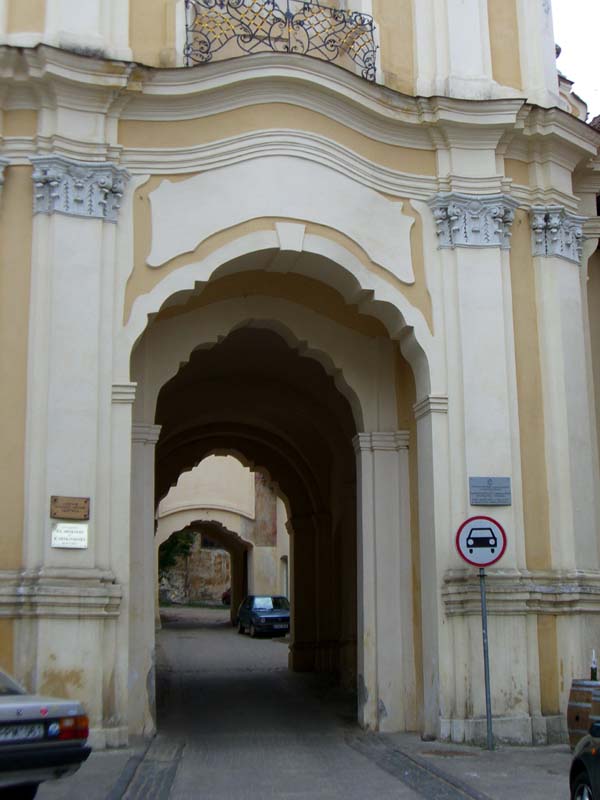
The entrance to the Holy Trinity Church and Basilian monastery in Vilnius Old Town, seen from underneath the arched passage from the previous picture, with more arches still ahead.

The inner courtyard of the Holy Trinity church and the Basilian monastery. This what you see when you pass through the Baroque archway shown in the previous pictures. Unlike the exterior that faces the tourist-heavy Didžioji street, the inner courtyard has not been renovated (at least as of 2006). There seems to be lots of trash, or perhaps construction debris, lying around. But dilapidated buildings are dear to my heart, so I’m not complaining.
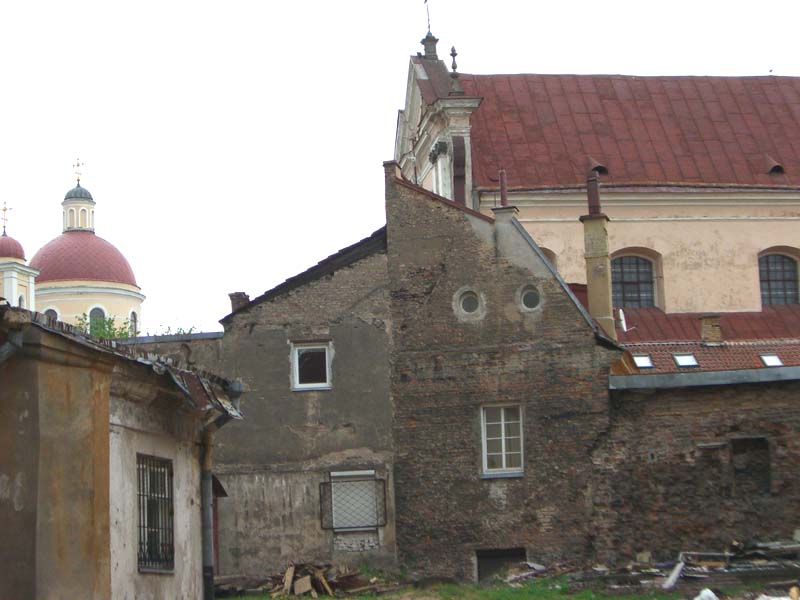
The inner tower of the Holy Trinity church and the Basilian monastery. I’m not sure what its purpose was or is.

St Theresa’s church courtyard with multiple arches

A courtyard in Vilnius Old Town with an arch between buildings that appears gratuitous; did it ever have a function? Was there a gate there in the distant past? Behind it, under a red roof, there is a bank of narrow doors that probably belong to storage units. Judging by how narrow they are, these are probably not entrances into apartments.
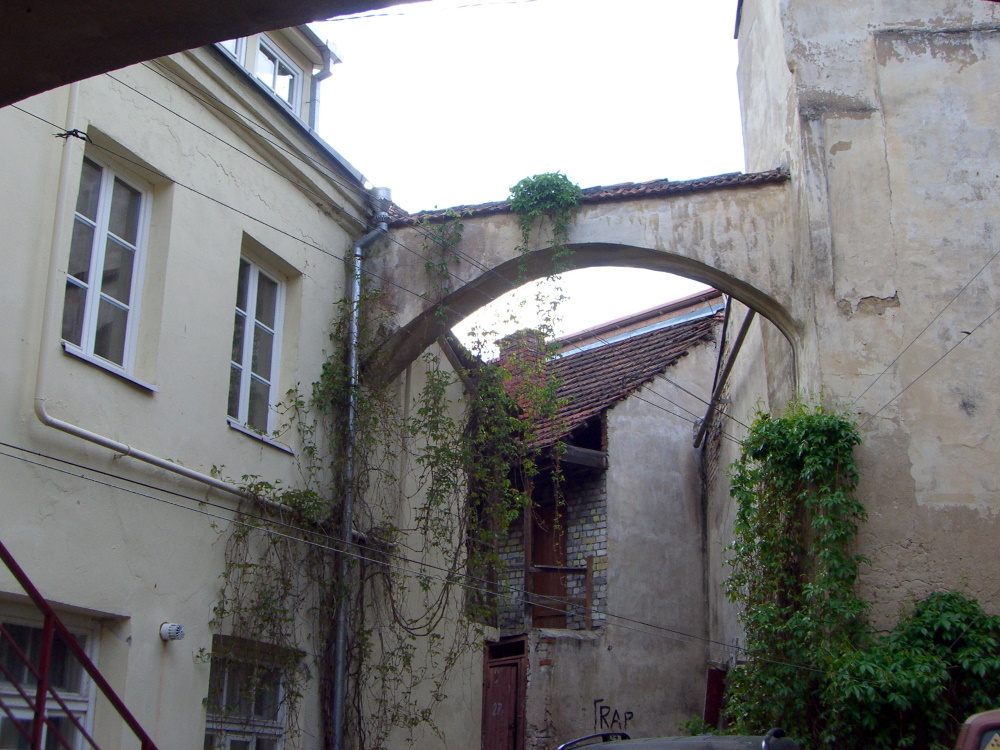
Here is another view of the same bank of storage units from the other side. Behind them there is a church steeple with a red roof. Well, in Vilnius Old Town there may not be possible to find a view that did not have a church steeple peeking out somewhere in the distance. From this angle, I’m pretty sure that these doors lead to little storage units that probably belong to the residents of apartment houses nearby.
The image at the bottom of this page shows another, similar, bank of storage units in a different place of Vilnius Old Town, except their owners have painted the doors cheerful colors. Meanwhile, here are decaying ruins of a similar Soviet-era building of storage units and (perhaps) garages.

A church wall with arches in it in Vilnius Old Town

A piece of Vilnius defense wall. It was built in the middle ages and destroyed almost completely, except some segments here and there. In the recent decades it was rebuilt. This segment is from before the rebuilding. Here is another image of the ruins of the medieval defense wall. And here are the restored portions of the medieval defense wall.
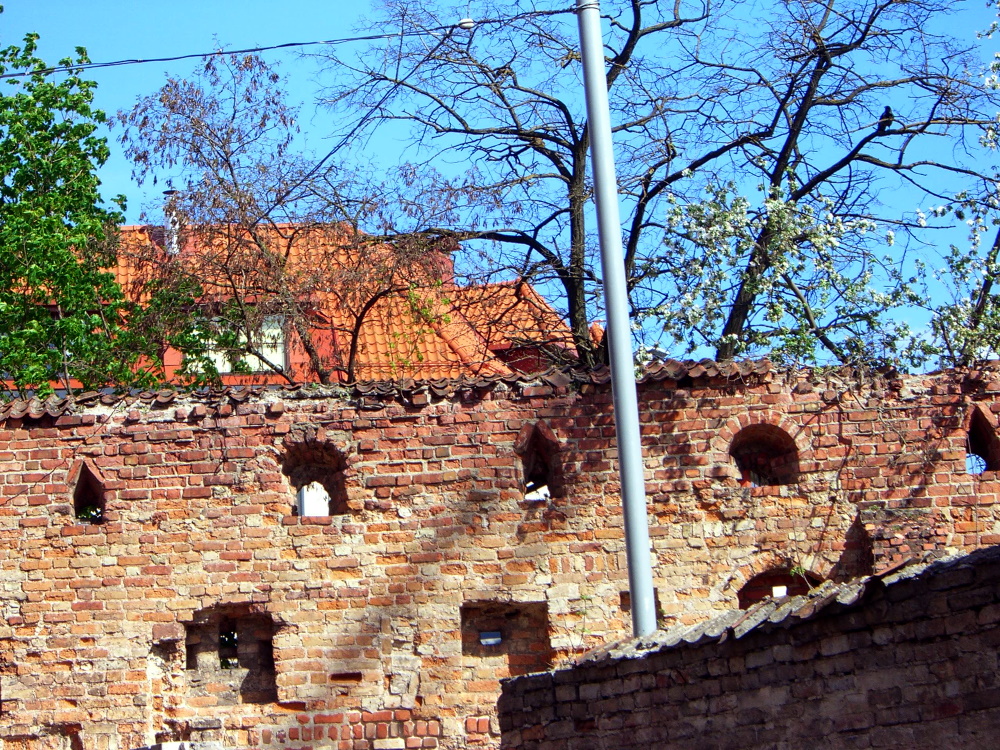
A view of Vilnius Old Town, and some new neighborhoods in the distance, from the main road in the Užupis neighborhood

This is a courtyard somewhere in the neighborhood of the Vilnius rail station. The colorful doors are most likely doors of storage units belonging to the apartments surrounding the courtyard. They are probably a leftover from the Soviet era.
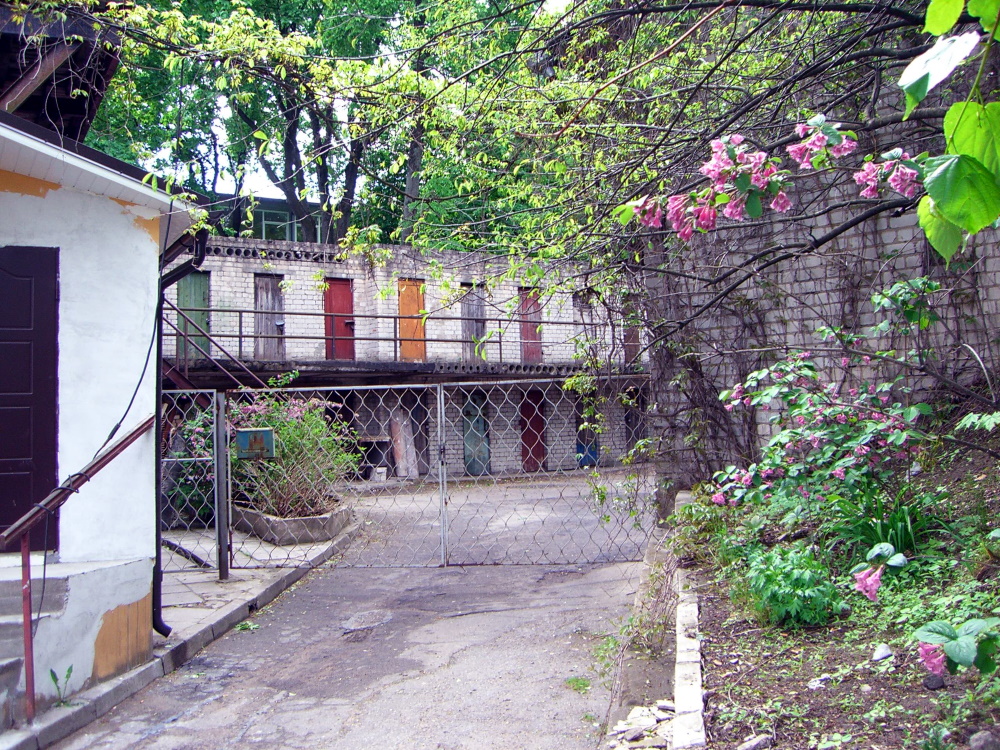
Money changers in a temple! There appears to be an Ernst & Young office in an old church courtyard.
… Well, it’s probably right next to the church, not inside it. It’s just the office and the church, from this angle, appear to be part of the same architectural complex.
